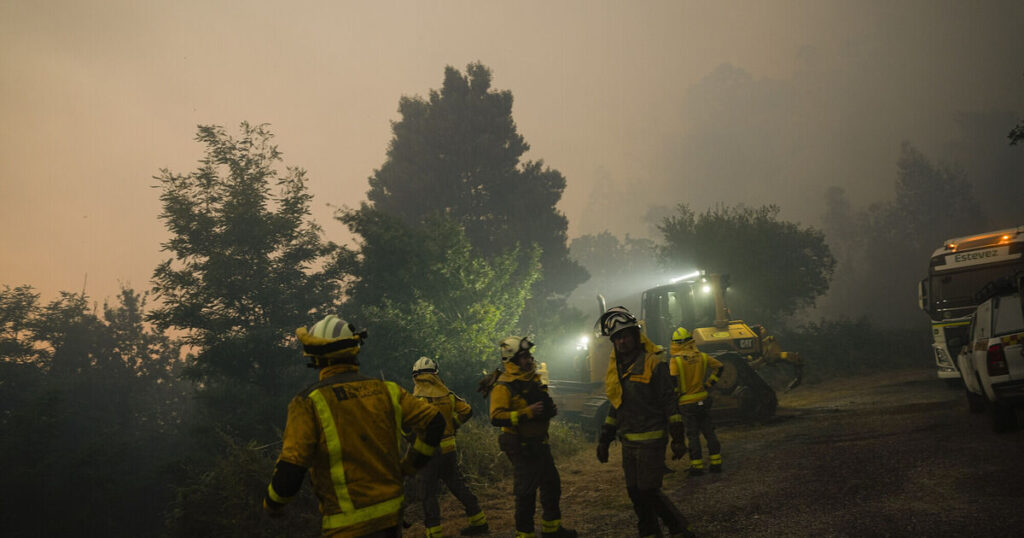Thousands of firefighters are struggling to contain a surge of wildfires in Spain and Portugal, with some fires having raged for days as temperatures are forecast to climb further across the Iberian Peninsula.
In central Spain, firefighting crews and military personnel worked through the night to get the upper hand on blazes in the Avila province. Their primary focus was containing a fire threatening the village of El Arenal, situated approximately 100km (62 miles) west of Madrid, according to emergency services.
In the western province of Caceres, authorities reported significant progress in stabilizing a fire that had consumed around 2,500 hectares (approximately 6,178 acres).
Most evacuation orders have been rescinded, officials stated.
Across Portugal, over 2,000 firefighters are battling numerous fires, particularly in the northern regions of the country.
Much of Spain and Portugal remains under a high alert for wildfires, and temperatures are expected to increase throughout the weekend.
Spain’s meteorological agency, AEMET, anticipates temperatures in central and southern Spain potentially exceeding 40C by Sunday.
Portugal is bracing for temperatures to rise on Saturday, reaching the upper 30Cs across most of the country.
Despite experiencing record-high temperatures above 40C in June, the total area burned by wildfires in Spain this year is currently less than in previous years.
Europe is experiencing the fastest rate of warming globally, with temperature increases occurring at twice the global average since the 1980s, according to the European Union’s Copernicus Climate Change Service.
Scientists are warning that climate change is intensifying the occurrence and severity of heatwaves and droughts, particularly in southeastern Europe, making the region increasingly vulnerable to wildfires.
21
Number of people taken into custody for suspected arson in Albania in the last few weeks
Human activities like burning fossil fuels such as gasoline, oil, and coal, in addition to deforestation, wildfires, and industrial processes release heat-trapping gases that contribute to climate change.
Wildfires themselves are often ignited by human actions.
On Thursday, Albanian authorities announced that 21 individuals have been arrested on suspicion of arson in recent weeks, a period during which the country battled 59 major wildfires that impacted 29,000 hectares (71,660 acres) of land.
Albania’s interior minister, Arsen Hoxha, indicated that most of the wildfires, which were ultimately extinguished by rainfall, were deliberately started by people.


